Christy O'Connor on ethics, politics and sponsorship in modern GAA
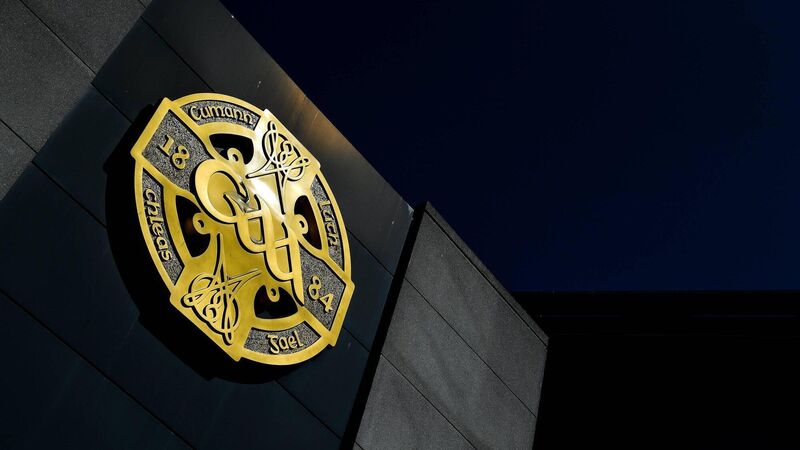
The GAA is under pressure to drop its link-up with Allianz. Picture: Brendan Moran/Sportsfile
Almost exactly 10 years ago, long before he became GAA President, Jarlath Burns had a gang of critics lining up to have a go at him when he spoke to the television journalist Eamonn Mallie about dispensing with the tricolour and the national anthem at GAA grounds.
“It wouldn’t cost me a thought because flags are divisive,” Burns said. “Do we need to say that any louder? If somebody was to propose in the morning that they were going to get rid of them all, it wouldn’t bother me at all. It’s an overtly political thing. It’s something which is specific to national borders.”
Predictably, Burns was slated for his views, but his frank observations on the issue of the flag and anthem in September 2015 were based on how dispensable they might be in the effort to improve unionist engagement with Gaelic Games.
A year later, then GAA President Aogán Ó Fearghail had his say on that topic. "The flag and the anthem means a lot to the GAA and will continue to do so, but who knows in the future?” Ó Fearghail said.
"There might well be political realignments on the island of Ireland. In the future, if there are new agreements and new arrangements, we'd be open-minded about things like flags and anthems – but not in advance of agreements."
There will always be opposition to deeply embedded political, cultural and historical issues. Yet who would have thought ten years ago that there would now be a thriving GAA club in a predominantly Protestant, certainly unionist and in some cases loyalist hotbed of East Belfast?
It almost seems fitting now that the East Belfast GAA club is thriving while Burns is GAA President. His comments ten years ago may have been highly controversial but if a fluent Irish speaker and leading GAA figure, nationally and in Ulster (which Burns was back then) could hold such views at that time, they merited serious discussion.
A decade on and GAA figures, especially players, have become much more conscious and comfortable at expressing their views on what would have once been deemed no-go social and political topics.
Last week, Dublin footballer Davy Byrne reiterated his call for the GAA to sever its ties with Allianz, outlining his disappointment that he will feature in a National League competition sponsored by the financial services company in 2026.
There has been widespread disquiet since July at the revelation in a UN report that a subsidiary of the company was complicit in Israel’s genocide in Gaza, having invested large sums in shares and bonds linked to Israel’s occupation.
The report was published on the website of the Office of the High Commissioner for Human Rights at the UN and alleged that Allianz helped “to sustain and pay for Israel’s actions in the Palestinian territories”.
Byrne was one of approximately 800 GAA players, past and present, who signed an open letter to the GAA and handed it in at Croke Park in August, calling for an end to the sponsorship deal. He also spoke outside the Dáil at a Dubs for Palestine rally, calling for an end to Israeli aggression.
There is a ceasefire now but that hasn’t altered Byrne’s views on the matter. “I don’t think that changes anything pre-ceasefire,” Byrne said last week. “It looks like we’re all going to be playing in the Allianz League. I think a lot of players who signed the petition wouldn’t be too happy about it.”
The GAA established its Ethics and Integrity Committee in February and the commercial partnership with the German-based finance company was first referred to the committee in early September.
One of the longest surviving sponsorships in Irish sport – going back to 1993 and former subsidiary Church and General’s link with the national leagues - Allianz have long been considered good sponsors. Its investment in the leagues runs to 2030 alongside its sponsorship of the football championship that expires in 2028. It also sponsor various Camogie Association initiatives and competitions, and the Cumann na mBunscoil competitions.
In response to the GAA protest march in August, Allianz said in a statement that Allianz Ireland is part of a global group and, while the wider group operates internationally across insurance and investment, as a matter of principle, they do not comment on individual customers or business matters.
Allianz business decisions may be guided by strict legal standards and environmental, social and governance principles but the sheer scale of the humanitarian nightmare still being played out in Gaza makes the GAA’s links to Allianz completely untenable.
Previous GAA decisions to outlaw sponsorship from alcohol and betting companies were guided by ethical considerations combined with the GAA’s own values, but this debate feels different because of how it has been internally driven by so many current and former players.
“I believe that the GAA continuing a sponsorship with Allianz, which has been named by the UN as financially complicit in war crimes and genocide in Gaza, goes against the values of the organisation,” said Davy Byrne, who has won eight All-Irelands, back in August. “As players we can’t ignore that. We have to try and hold the association to account.”
And they are certainly trying their best to do so.
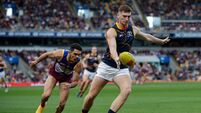
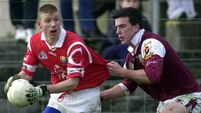
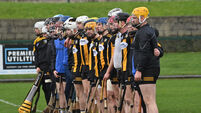

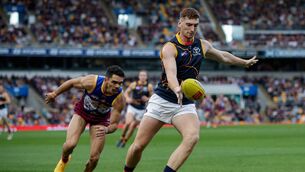



 App?
App?







